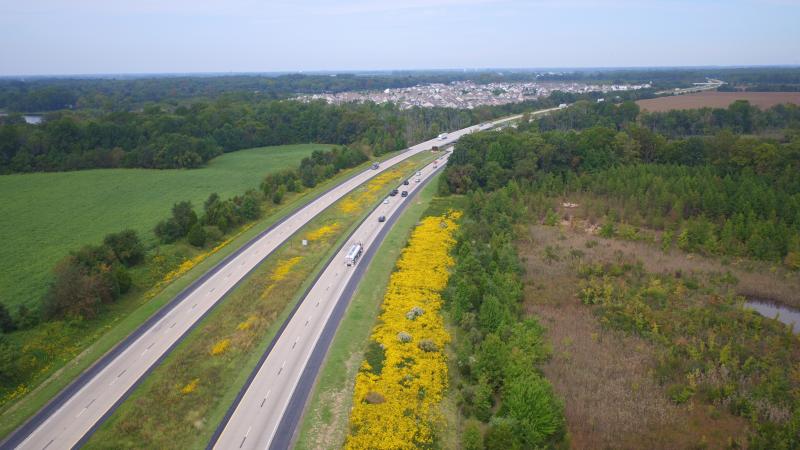Delaware's drivers may notice more flowers sprouting up on the state's nearly 14,000 lane miles of roadside this year.
The steep decline of monarch butterflies and other pollinator species is believed to be due in part to loss of suitable habitat.
Pollinators are animals that help plants reproduce by moving pollen from one part of the plant to another. Because many crops depend on pollination, pollinators contribute billions of dollars' worth of value to the economy each year. Over the past several years, DelDOT implemented changes to its management practices to benefit pollinators. In the past, the agency promoted well-manicured turf grass along the state's roads. These management practices effectively create food deserts for pollinators which depend on blooming plants.
To support pollinators, DelDOT started incorporating more native species and clover into its seed mixes, and has transitioned to a reduced mowing regime. For instance, along portions of Route 1, the agency continues to mow a safety strip adjacent to the road, but land beyond the safety strip is not mowed during most of the growing season. This allows wildflowers an opportunity to thrive, which can benefit pollinators.
"There are numerous areas along our roads throughout the state that we have regularly mowed just to keep the natural growth down. This innovative program allows DelDOT to not only help pollinators, but it reduces the amount of mowing in some areas, and provides a much more visually appealing landscape by our roads," said Secretary of Transportation Jennifer Cohan.
"Conservation is an all-hands-on-deck effort, and I'm so glad that DelDOT is committing to being part of the solution for Delaware's native species decline," said Sen. Stephanie Hansen, D-Middletown, who chaired the Ecological Extinction Task Force and has been a champion for conservation in the General Assembly.
The agency also plans to create a 43-acre pollinator meadow mitigation site outside Middletown. DelDOT has joined 24 energy and transportation organizations to develop a conservation agreement to benefit the monarch butterfly and other pollinators. These efforts reflect DelDOT's commitment to environmental stewardship and to staying in line with industry practices, which increasingly recognize the ecological value of roadsides.





















































